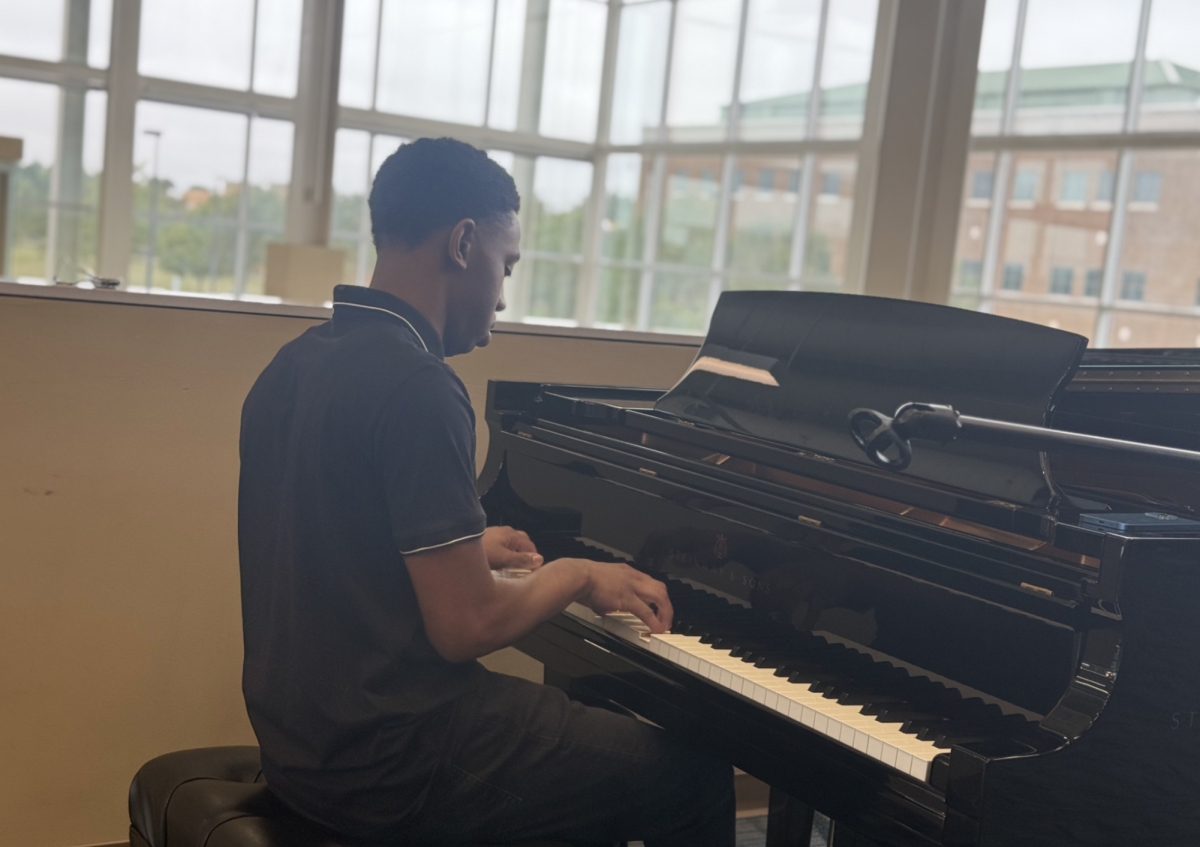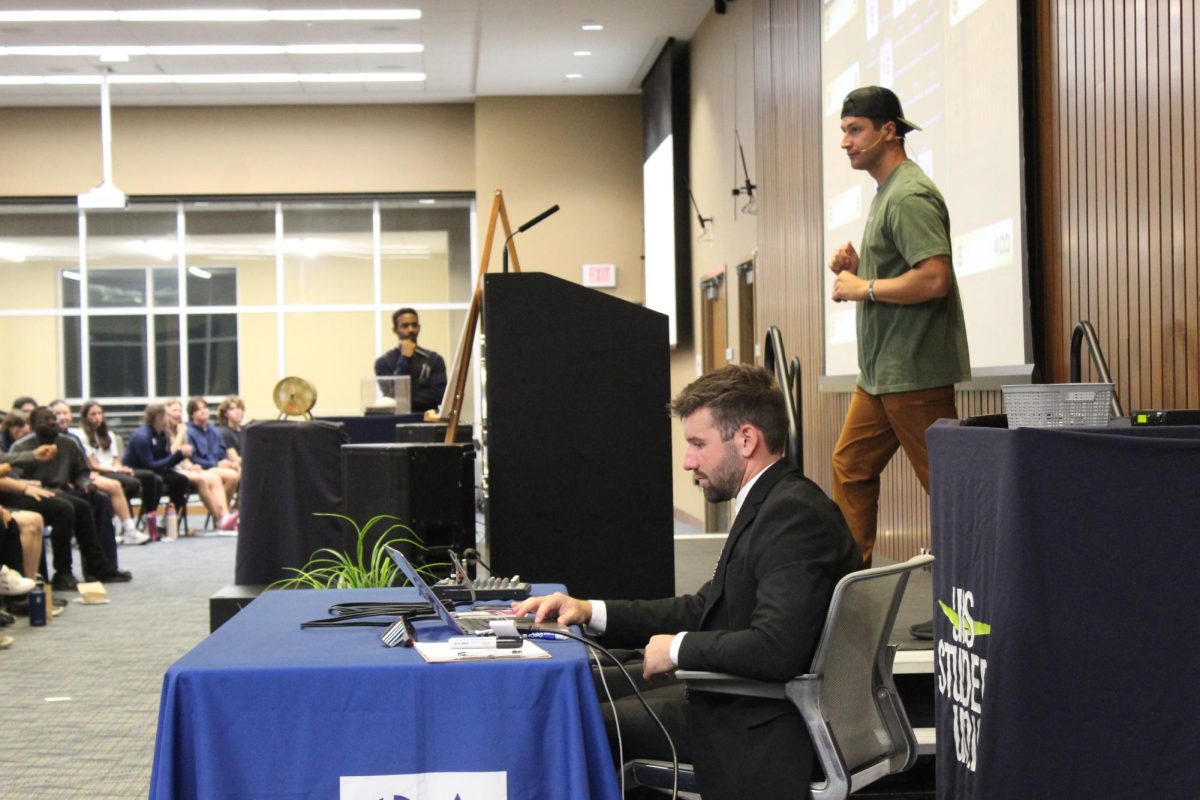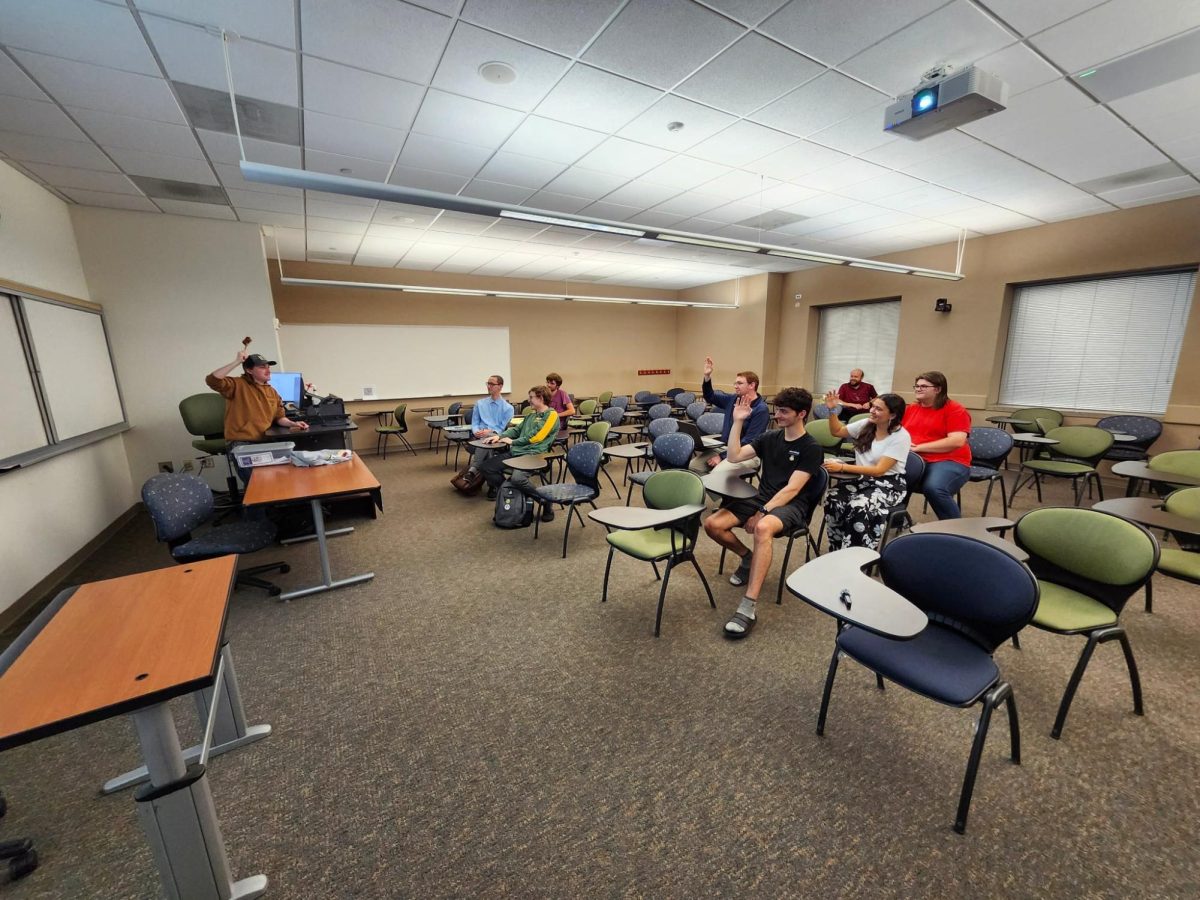Susan Koch, Vice President and Chancellor, outlined five priorities for UIS while addressing the Campus Senate: relevance, visibility, affordability, engagement, and excellence. In a wide-ranging discussion, in which she fielded questions and concerns from Senators on a number of different issues, Koch highlighted both the ways in which UIS is achieving its priorities and where improvements need to be made.
“We do not have enough academic programs,” Koch said. She singled out healthcare as an example of a growing industry that employs many in the Springfield area, but for which UIS has few specific academic programs. Expanding program offerings is important both for meeting student needs and for maintaining economic viability in light of funding changes.
“We are almost a private institution,” Koch said, because the university generates a majority of its own revenue, rather than relying on state funding. In order to offset decreases in state funding, Koch said,“I would like to see us be about 10 percent of the University of Illinois student body,” which means growing to approximately 7,000 students, an increase of about 2,000. But the desire for increased tuition dollars must be balanced with a commitment “to the student-faculty relationship that is so important here. It is who we are. But I am very confident that we can maintain the same level of relationship and grow at the same time.”
One of the ways UIS is meeting student needs is through online courses, Koch said, but Donna Bussell, Associate Professor of English, expressed concerns that an emphasis on online programs impacts the identity of an institution and the quality of the education. “One of the secrets of our success has been local … faculty control” of online programs, which results in “quality control,” Bussell said. She warned that “super-sizing” online courses could result in “more massive, centralized programs.”
Koch acknowledged that tension but said, “I would much rather have us be on the forefront of discovery in this area, than trying to play catch up like my colleagues at most other universities. I believe that online education is going to continue to be part of our success story long into the future.”
One of the success stories Koch pointed out is “that we have the most diverse freshman class in the history of our University.” That diversity brings opportunities for awareness. Heather Dell, Associate Professor of Women and Gender Studies, brought up some issues that came out of discussions with Kate Bornstein, a transgendered author and playwright who recently visited UIS.
Dell said UIS should consider options for transgendered students who wish for their iCard to reflect their chosen name. In addition, “Bathroom access is always a question because when they’re not fully legible in a particular gender box that can be a really dangerous, uncomfortable, or unwelcomed moment,” Dell said.
Ryan Williams, Associate Professor of Criminal Justice, highlighted the importance of analyzing how a diverse student population will interact with the UIS police force. “I teach an introductory criminology course with lots of freshman,” where they cover unreported crimes and other issues important to students of diverse backgrounds, he said. “You’d be amazed at the stories I hear … They revolve around interactions with police. Some are positive, and some are not very positive.”
Koch responded that this is an area of concern for her, too. “I’m very appreciative of our police force. They’re job is to keep us safe, and they do a good job.” But she added, “There is no diversity on the police force, and it is not acceptable. I just worry that when you have a diverse campus, but you don’t have a diverse police force, the potential for problems are there.” She hopes that by the end of the academic year, the infrastructure will be in place to achieve more diversity through the cooperation of civil service departments.
Williams believes that diversity on the force is important, “but that’s not enough,” he said. As a former police officer, Williams understands that a force’s style of policing should adapt to the population it serves and that students bring with them all the experiences they have had with law enforcement in the past. “The police should be very clear as to what their philosophy of policing on a campus is,” he said. “Once you understand that philosophy and educate the student body as to what that philosophy is, it helps the students understand what is going on.”







